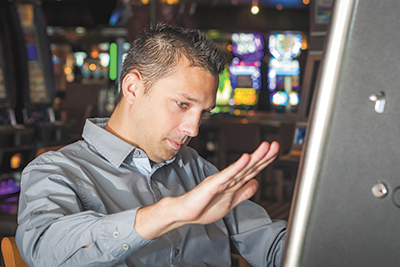Local governments are playing a key role in preventing harm from poker machines in their communities.
In the Whittlesea Council area in Melbourne’s outer north, over $107 million was lost to poker machines over the last year – the sixth highest amount across Victorian local government areas. Across the state there are almost 29,000 machines and losses hit $2.6 billion annually. At the national level, Australia has around 200,000 machines – one of the highest per capita rates in the world.
In Victoria, it is local government’s responsibility to grant planning permits for poker machines and councils have the power to reject applications. For a large part of this year, Whittlesea Council has been locked in a battle at the Victorian Civil and Administrative Tribunal (VCAT) after rejecting a proposal for 40 new poker machines to be installed at the Commercial Hotel in the suburb of South Morang. The hotel is owned by the Australian Leisure and Hospitality Group (ALH), of which Woolworths owns a major stake.
Whittlesea Councillor and President of the Municipal Association of Victoria (MAV) Mary Lalios said Council chose to fight the case to protect the community.
“There are only two venues [in Whittlesea] that are hotels that don’t have pokies in them, so families won’t have the option or the choice of going to a venue that doesn’t have any pokies.”
The case ran for eleven days – one of the longest ever poker machine-related case to come before the Tribunal and, at the time of writing, a decision had not yet been announced.
Cr Lalios said costs incurred by Council throughout the case were worth it in the long term: “It does cost a lot of money to defend these decisions, but what price do you put on a healthy, vibrant community?”
Darebin Councillor and board member of the Alliance for Gambling Reform Susan Rennie has played a role alongside Whittlesea and said the council is a leader in the area.
“On a policy level, [Whittlesea are] very strong and make sure no staff or community group outings take place in or go to gambling venues. Not only does that mean they’re not exposing people, they’re also showing leadership by setting an example and saying we don’t think these are healthy or good places to go.”
Whittlesea recently partnered with Moreland, Darebin and Hume Councils to pilot the Libraries After Dark program, which extends library hours to offer people an alternative, safe place to go at night.
The Alliance for Gambling Reform — which is led by 11 Victorian councils — has been advocating for tighter poker machine regulation as gambling reform legislation goes before the Victorian Parliament this year.
The Alliance is calling for a limit to venue opening hours, which are currently set at 20 hours a day in Victoria, and a reduction in the maximum bet to one dollar per spin.
In October, Hume and Whittlesea put forward a motion to the MAV for councils to advocate to the State Government for long-term policy reform.
Hume Councillor Drew Jessop highlighted the social impact that poker machines can have: “Evidence clearly shows that for every one problem gambler, there are potentially seven people who are adversely affected. It is a strain that is felt among a diverse range of families living across Melbourne, particularly those from a lower socio-economic background.”
A report from the Tasmanian Government this year also drew a link between social disadvantage and concentration of machines: “As unemployment rises, so does the number of EGMs [Electronic Gaming Machines] installed in the local government area”.
In areas with the highest unemployment – Burnie and Georgetown – the number of poker machines per thousand residents is far higher than the more affluent areas of Hobart, Kingborough and Clarence. The report found “this indicates that, under current market settings, EGMs may be having negative social consequences by skewing the location of machines to areas where people are least able to afford to lose money through gambling.”
Tasmanians are heading to a State election next year and poker machines are already a hot-button issue in the campaign.
In New South Wales, the losses from poker machines are the highest in the country. Within the Fairfield City Council municipality, which is ranked as the most disadvantaged area in Sydney, there are over 3800 machines and the 2015-16 turnover reached $8.27 billion.
In a submission to the New South Wales Government earlier this year, the Council suggested the need for a cap on the number of machines in disadvantaged areas and changes to the current Local Impact Assessment process, which determines where new poker machines can be installed.
Cr Rennie said across the country reform needs to happen at the State level.
“Many councils in Victoria and elsewhere understand that the most powerful things that need to be done actually need to be done by the state governments.
“We need law reform to make this industry safer. It’s not about banning the industry. We accept that poker machines are in the suburbs. It’s about making those machines safer and the venues safer.”
However, Cr Rennie said councils could still play a key role in harm minimisation and should start by listening to members of their communities.
“Try and create an opportunity to hear from people that have been directly impacted by gambling harm.
“It’s absolutely important when we’re making decisions in local government that we understand the decisions and those implications on vulnerable community members.
“Think about your own council’s position and policies and how they might be used to reduce harm.”

















